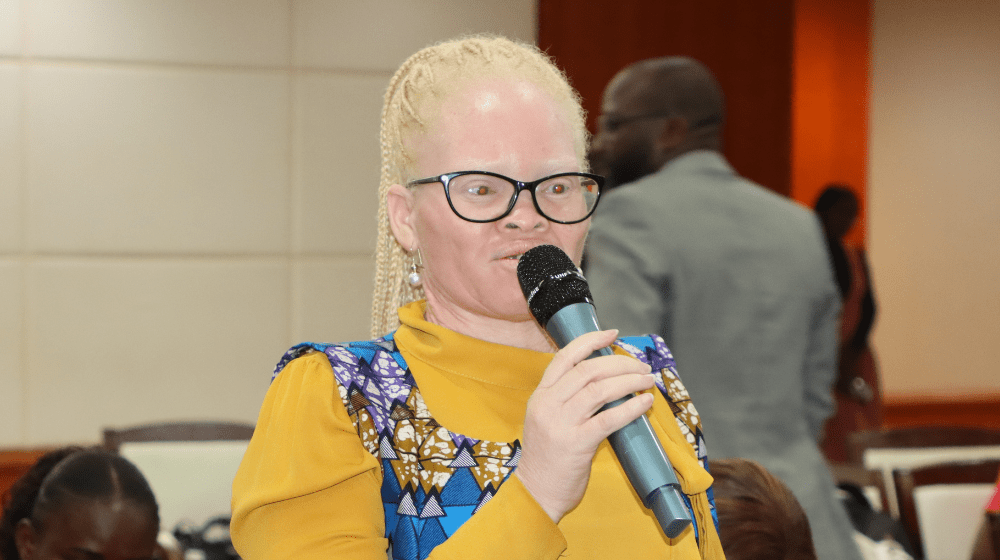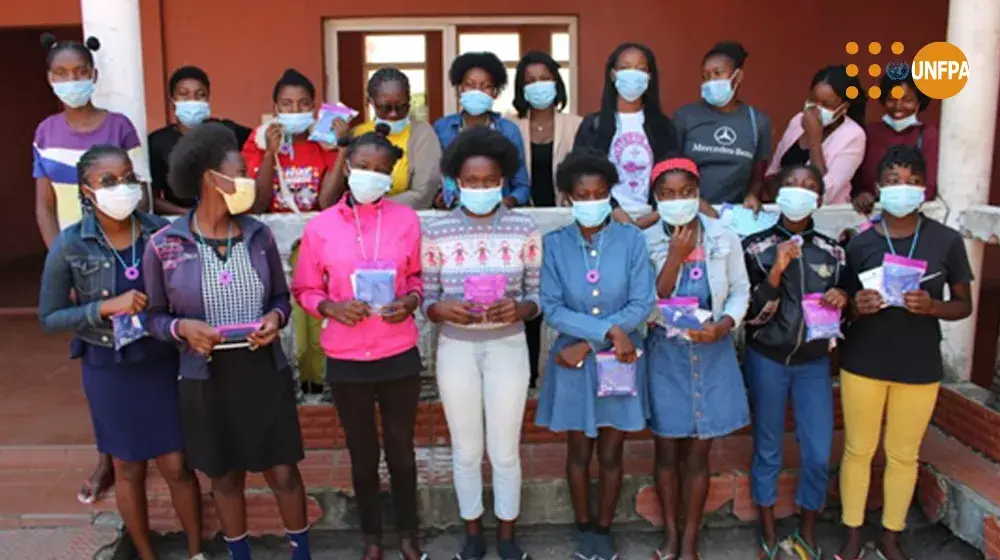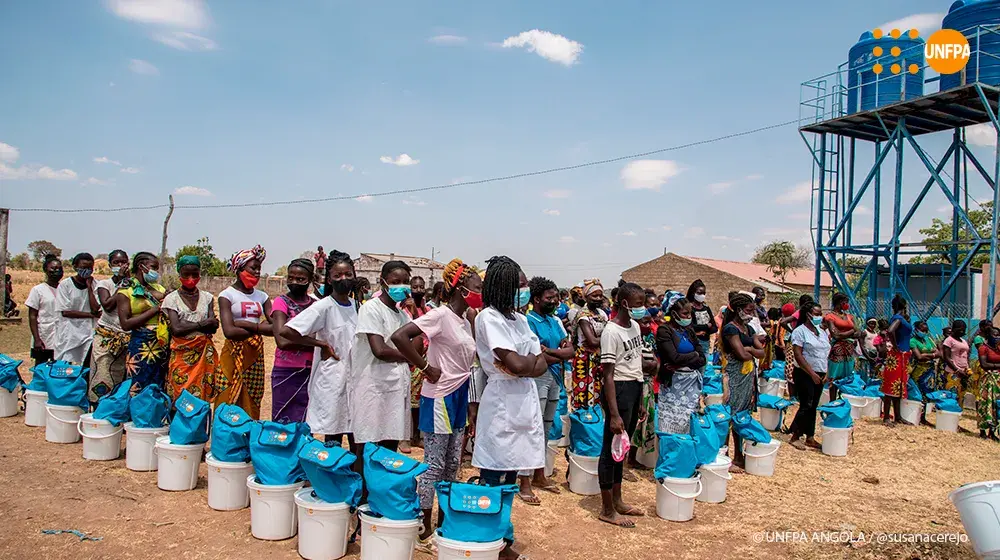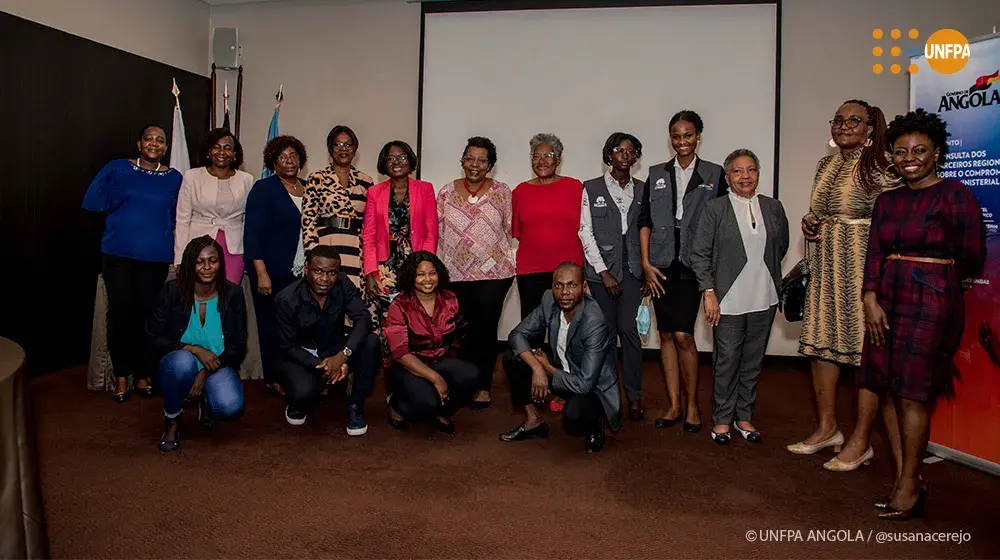Angola, Luanda - The Government of Angola and UNFPA are working together to find innovative solutions to the challenges faced by people with disabilities.
On 23 April 2024, the Ministry of Social Action, Family and Promotion of Women, with the support of UNFPA, held a Public Consultation to better understand the needs of People with Disabilities - PwD, especially women and girls, in accessing sexual and reproductive health services and empowering women with disabilities.
The session saw the active participation of the beneficiaries, who shared their stories and testimonies, providing valuable input in the search for effective solutions in the Angolan context.
The testimonies highlighted the challenges faced by PwDs in accessing essential sexual and reproductive health services and access to training. They emphasised the urgent need for innovative approaches to promote inclusion and guarantee the full exercise of the rights of people with disabilities in Angola.
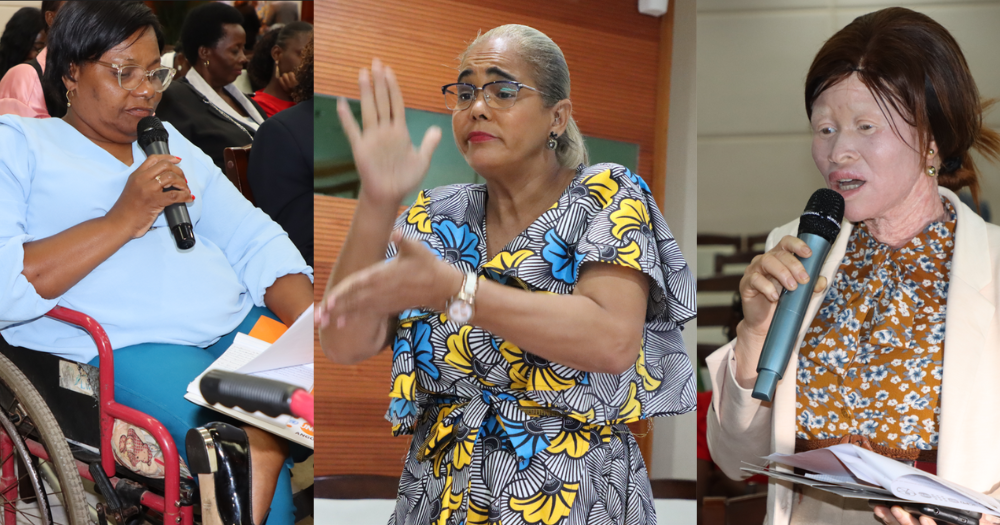
‘I had a lot of difficulty giving birth to my children when it came to getting on and off the couch. There's no feeling of help,’ said Mrs Esmeraldina, from the Angolan Association for the Rights and Inclusion of Women with Disabilities. She went on to say: ‘You're already carrying a high-risk pregnancy and you have to work harder to get on and off the couch and the (technician health) just looks on’.
‘Often deaf people have to beg to receive care. There's no interpreter to accompany deaf women in the institution to pass on information to the doctors. Doctors are very dismissive because of the communication barrier,’ said Mrs Sílvia, a deaf woman from the National Association of the Deaf of Angola.
‘In primary school I decided not to go to school for fear of discrimination for being a person with albinism. I learnt to read and write at home with my father. Only then did I go to school,’ said Mrs Amélia, who belongs to the Albino Support Association of Angola.
The public consultation was a time for consultation and reflection on innovative solutions, which were presented by representatives of the various associations of people with disabilities.
In addition to the associations of people with disabilities, senior representatives from the Ministry of Social Action, Family and Promotion of Women, Youth and Sports, Education, the Ministry of Transport and Health, the Representative of UNFPA Angola, as well as Representatives of United Nations Agencies took part in the activity.
This initiative was carried out on the basis of the approval and publication of the Plan for the Inclusion and Support of People with Disabilities (PLANIAPED), approved by Presidential Decree 217/23 of 31 October, and is based on the United Nations and UNFPA Disability Inclusion Strategies.

Dorivaldo Caetano, Social Media Associate

